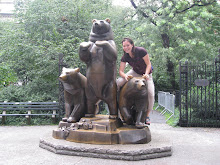Why do people deliberately shed the ties and links to their traditional "identity" in favor of creating an identity that essentially exists in a vacuum for an assumed limited amount of time? Anonymity in the past has been used to preserve the purity of artistic perspective, to publish ‘unfavorable’ or inflammatory opinions, or to merely hide the identity of the writer. The internet has allowed anonymity to be accessed by anyone with an ISP. The facility of adopting anonymity has created entirely new communities and groups on the internet that are bound or freed by their very lack of ‘nonymity’. How does this change how people view morality? Do they still hold to their society's moral code, or do they abandon it? Do they embrace hypocrisy; do they try to make the world better?
The very idea of anonymity eliminates most types of accountability that society might ascribe to any actions or ideas posted or taken by anons, which many feel creates an incredibly corrosive, an incredibly dangerous situation for the health of society as we, as humans, have known of it for generations. However, we have seen anonymity take off and flourish in many different directions. PostSecret and Anonymous/4chan/etc seem to be different sides of the same coin. One tends to use anonymity to share, comfort, create community while Anonymous tries to act as a pseudo-vigilante and as a somewhat sophomoric hedonist who derives pleasure from the plight of or attack on others, and also to create a group (if not a community). Both are made up almost entirely of people who choose to create an anonymous identity and then to create ties and links to other “anons” via either PostSecret or 4chan type of sites. The fascinating thing is that their anonymity has allowed them to create any identity they wish, yet they still seek some sort of community.
Anonymity has distinct power in generating an identity completely other and mostly divorced from the "real" identity of the person - in fact, some people call their "anonymous" or adopted personas as more real than their originals... Often the adopted personas become an exaggerated form of a facet of the physical person’s named identity and character, exploring the feelings or desires of one aspect of the personality. The more extreme versions of this have been publically vilified and fear-mongers on FOX news and other “media” sources have pointed fingers at groups like Anonymous and at anonymity over the internet as a whole. I tend to believe that you cannot completely vilify any group entirely; everything is shades of gray and Anons are no where near the darkest part of the spectrum….
Interesting quotation from the beginning of a paper:
“Early research on online self-presentation mostly focused on identity constructions in anonymous online environments. Such studies found that individuals tended to engage in role-play games and anti-normative behaviors in the online world. More recent studies have examined identity performance in less anonymous online settings such as Internet dating sites and reported different findings. The present study investigates identity construction on Facebook, a newly emerged nonymous online environment. Based on content analysis of 63 Facebook accounts, we find that the identities produced in this nonymous environment differ from those constructed in the anonymous online environments previously reported. Facebook users predominantly claim their identities implicitly rather than explicitly; they "show rather than tell" and stress group and consumer identities over personally narrated ones.”
Also, the idea that the internet is ephemeral creates, perhaps, a feeling of inability to connect with others or that of anomie may instigate things like “trolling” or behavior that seeks to evoke any kind of reaction in order to somehow confirm/affirm the existence of the person.
Subscribe to:
Post Comments (Atom)

No comments:
Post a Comment